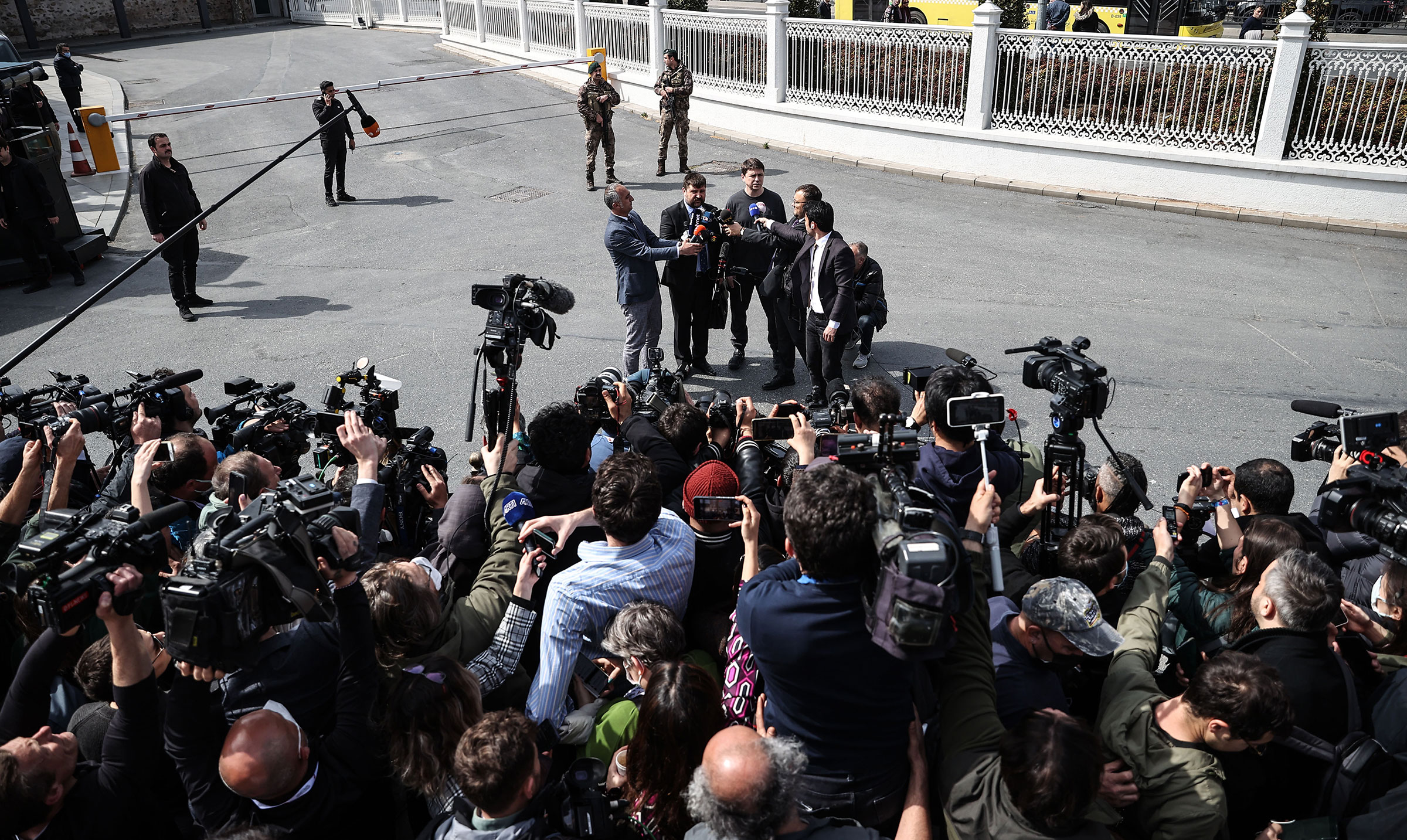
This article is part of The D.C. Brief, TIME’s politics newsletter. Sign up here to get stories like this sent to your inbox.
It’s mighty tempting in geopolitical circles to fall into a choose-your-own-adventure reality. And nowhere was that more apparent than Istanbul this week as representatives from Moscow and Kyiv tried to broker an end to a European ground war that is now bleeding into its second month and threatening the entire post-World War II status quo.
A raft of optimistic headlines would suggest there’s potential for peace in the region, and both sides’ message machines went into overdrive to sell the notion of a breakthrough. But the cruel realities engendered deep skepticism back here in D.C.
The headlines suggest Russian President Vladimir Putin would gladly meet with Ukrainian President Volodymyr Zelensky once the final terms are hammered out, and Russian forces would scale back their violence towards the Ukrainian capital in the interim. But at the White House, the top communications hand to President Joe Biden said “no one should be fooled by Russia’s announcement,” the Pentagon’s top spokesman warned that Russia “can still inflict massive brutality on the country” of Ukraine, and even Ukraine’s foreign minister advised his negotiators not to eat, drink, or touch anything that might lend itself to poisoning.
In short: they’re at the table, but everyone assumes every single tchotchke on it is a diplomatic—if not real—land mine. That doesn’t lend itself to much real productivity.
Welcome to the performative dance of diplomacy that has foreign policy hands from Washington to Beijing trying to figure out if any of this is real. Any responsible nation would accept an invitation to negotiate. But, at the end of the day, there’s really no point in joining the talks if you know the party across the table is ready to sabotage the process on a whim or with bad intelligence. These talks are all about Moscow positioning itself against the West. And that makes it all the more dangerous for Kyiv.
Bad-faith negotiations are hardly new. In fact, there’s an entire field of the discipline that urges diplomats to assume the players on the other side are negotiating only on their own behalf. But seldom have there been such blatant examples of figures at the table—or observing from seats pressed against the walls—openly saying they don’t trust their peers. Even during talks with some truly noxious rivals throughout history, Washington would adopt a Russian proverb doveryai, no proveryai—or as Americans came to know it via Ronald Reagan, trust but verify. Now, the centers of power in Washington are telling audiences to distrust the posture from the other side. Even as Moscow was telling the West earlier this week that it was backing off its assault on Kyiv, intelligence officials warned the public it was a ploy meant to reposition its weapons for a new wave of attacks.
And, it turns out, the West was right. It now seems fighting in the eastern stretch of Ukraine has intensified, strikes are coming at the very spot where Moscow had vowed to tamp down hostilities, and “filtration camps” are screening Ukrainians before relocating them from their cities. All of this comes in direct contrast with what peace talks just days earlier had sought to de-escalate.
Now two months into this bloody war and sprawling refugee crisis, Washington, Ukraine and the rest of the world are ready to find an offramp from Russia’s continued aggression. Peace talks seemed like an opportunity for a pause, if not a resolution. But from the start it’s been clear the sclerotic distrust between Russian and Ukrainian negotiators isn’t misplaced. After all, if you can’t trust the Russian across the table not to poison you, his word is even less appetizing.
Make sense of what matters in Washington. Sign up for the D.C. Brief newsletter.
More Must-Reads From TIME
- The 100 Most Influential People of 2024
- Coco Gauff Is Playing for Herself Now
- Scenes From Pro-Palestinian Encampments Across U.S. Universities
- 6 Compliments That Land Every Time
- If You're Dating Right Now , You're Brave: Column
- The AI That Could Heal a Divided Internet
- Fallout Is a Brilliant Model for the Future of Video Game Adaptations
- Want Weekly Recs on What to Watch, Read, and More? Sign Up for Worth Your Time
Write to Philip Elliott at philip.elliott@time.com